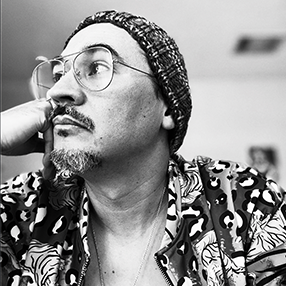Bird
After I fumble another conversation about love, I think,
Bird wouldn’t have hesitated for a moment, played
coy as if everyone didn’t already know what #33 would do,
daggers for eyes, soft hands ready to guide that orange ball
exactly where he said he would. I’ve taken shots before,
fear be damned, and missed more than I made,
gone up and down the court enough to know
halftime won’t fix everything.
I’m bruised, my knee barks, my shot is shit, and I
just need the bank to be open for once, for the glass to
kiss the ball back, softly. I’m always writing to you
like a last-ditch prayer, a heave from halfcourt
moving like a meteor, like I could turn this white page of
nothing into a night sky, these words constellations,
old messages that would say in a hundred different
shapes that I love you. All I ever wanted was Bird’s game,
quietly telling opponents the spot on the floor where he would
rise, after a screen and two dribbles, in the corner like a yellow
sun and let the ball fly. I’m always writing to you
to remind myself that all love poems are about the future.
Under the bright lights of this metaphor, I’m digging deep, not
vanishing when it matters most, to find the heart to take a shot
when the clock winds down to nothing. The X-Man,
Xavier McDaniel, laughs when he tells of how Bird took his heart once.
You already know you have mine when the clock says
zero my no-look mouth, my honey crossover, my silky net.
Copyright © 2025 by Tomás Q. Morín. Originally published in Poem-a-Day on May 2, 2025, by the Academy of American Poets.
“Hall of Famer Larry Joe Bird of the Boston Celtics was my favorite basketball player when I was a kid, partly because we both hailed from small, rural towns, and because he played with so much passion and joy. Stories of his confidence are legendary, especially how he told opponents what he planned to do and then did it. An abecedarian also announces to a reader its formal intentions. In keeping with the ancient function of the form, my poem is a hymn, a praise song for love and basketball and our beautiful human hearts that dare.”
—Tomás Q. Morín

